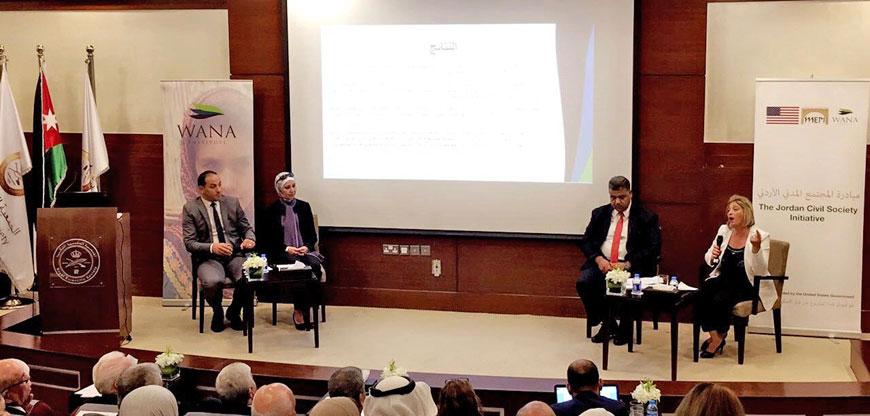You are here
2021 Civil Society Organisation Sustainability Index launched
By Maria Weldali - Dec 08,2022 - Last updated at Dec 08,2022
AMMAN — The Information and Research Centre — King Hussein Foundation (IRCKHF), on Thursday launched the 2021 Civil Society Organisation (CSO) Sustainability Index.
The Index evaluates seven interrelated dimensions of the sustainability of CSOs, including the legal environment, organisational capacity, financial viability, advocacy, service delivery, infrastructure and public image.
Additionally, it assists the capacity of CSOs to act as a partner in implementing development solutions and as a long-term actor in monitoring key aspects of CSOs sector sustainability.
Despite consultations with local and international CSOs regarding improving the Law on Societies, the Ministry of Social Development concluded the meetings without making any changes. So, the legal environment governing the CSO sector remained unchanged in 2021, the report revealed.
The report also said that “Law on Societies 51 of 2008 and its amendments continue to be the primary law governing the operation of local and foreign organisations.” However it restricts CSOs’ work in many ways, as CSOs need to register and seek approval in order to receive foreign funding, in addition to facing other challenges.
In 2021, the ministry established a committee aimed to review the Law on Societies, and accordingly, dialogue sessions engaged over 2,500 CSO representatives. However, all consultations were suspended.
“Freedom of expression remained restricted in 2021,” according to the index, pointing out that the organisational capacity of the CSO sector “remained stable” in 2021, after deteriorating slightly in 2020.
In Jordan, some CSOs continue to lack the financial resources to upgrade their information and communications technology (ICT), while other organisations faced funding cuts, particularly during the pandemic.
“Foreign funding to the CSO sector remained low compared to pre-pandemic levels and local funding declined as both private and public sectors continued to grapple…” the index showed. This resulted in CSO sector not being able to expand or diversify its funding sources, because private sector funding decreased.
Governmental institutions prefer to work with large CSOs and RNGOs, “ignoring the contributions of community-based organisations and small charities that work primarily with women and youth.”
On the other hand, the private sector is supportive of the role played by CSOs, despite the fact that but its engagement with CSOs through social responsibility programmes somewhat decreased during the pandemic.
Related Articles
AMMAN — Every year since the Arab Spring, the Information and Research Centre – King Hussein Foundation (IRCKHF) has carried out the Jordan
AMMAN — The Information and Research Centre – King Hussein Foundation (IRCKHF) has held a virtual two-day expert panel meeting to discuss an
AMMAN — The West Asia – North Africa (WANA) Institute on Tuesday launched its advocacy strategy for Civil Society Organisations (CSOs): Towa

















